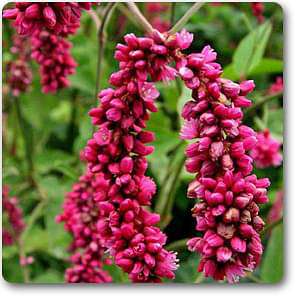
Polygonum - Plant
(MRP Inclusive of all taxes)
- Shipping ₹79 for entire order
- Dispatch in 7 days
- Country of origin: India

(MRP Inclusive of all taxes)
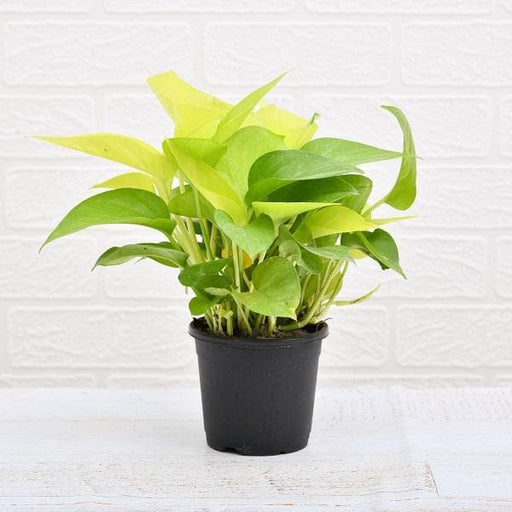 Save 29%
Save 29%
Air Purifier Money Plant with Pot The Air Purifier Money Plant, also known as Pothos or Epipremnum aureum, is a stunning indoor plant that...
View full details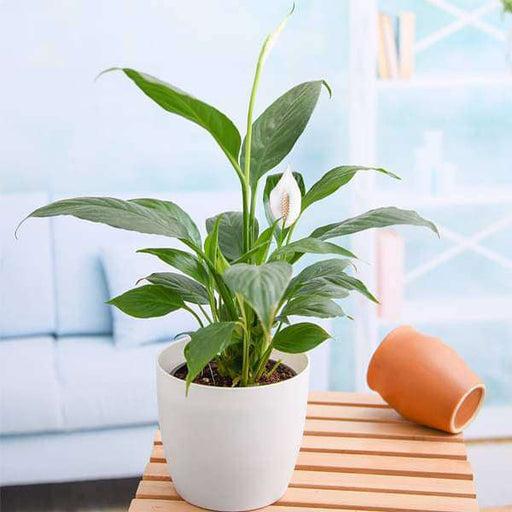
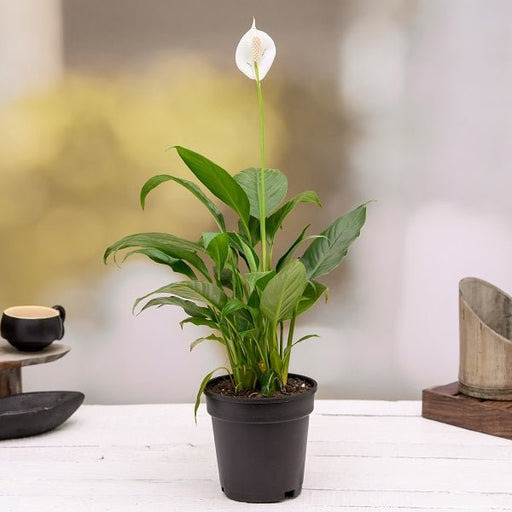 Save up to 15%
Save up to 15%
Peace Lily, Spathiphyllum - Plant The Peace Lily, scientifically known as Spathiphyllum, is a stunning houseplant celebrated for its elegant white...
View full details
 Save 25%
Save 25%
Jasminum sambac, Mogra, Arabian Jasmine - Plant Jasminum sambac, commonly known as Mogra or Arabian Jasmine, is a fragrant flowering plant...
View full details
 Save 18%
Save 18%
Combo Constituents Includes the Parijat Tree (Night-Flowering Jasmine), a culturally significant plant with fragrant flowers. Description The Pari...
View full details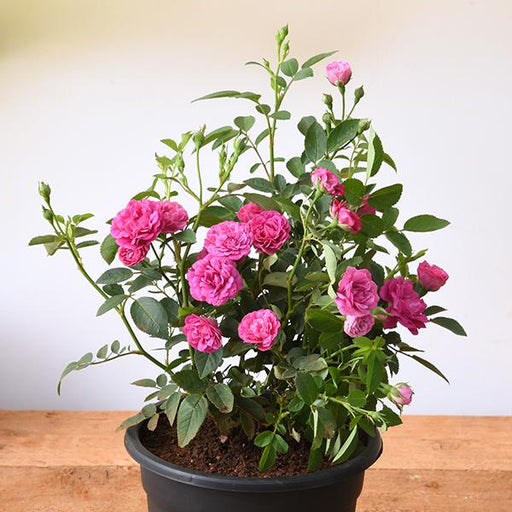
 Save 25%
Save 25%
Miniature Rose, Button Rose (Any Color) - Plant The Miniature Rose, also known as the Button Rose, is a charming and compact flowering plant that ...
View full details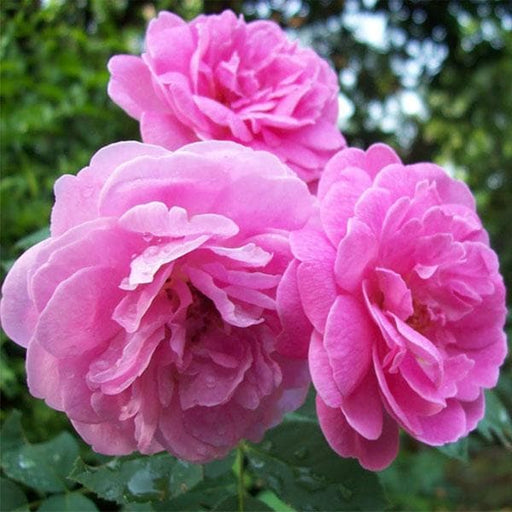 Save 25%
Save 25%
Damascus Rose, Scented Rose (Any Color) - Plant The Damascus Rose, also known as Rosa damascena, is a timeless symbol of beauty and romanc...
View full details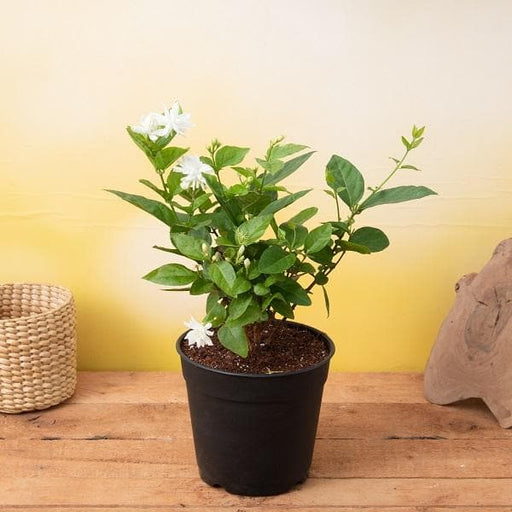
 Save 17%
Save 17%
Beautiful Fragrant Mogra, Arabian Jasmine Plant with Pot The Beautiful Fragrant Mogra, also known as Arabian Jasmine (Jasminum sambac), is...
View full details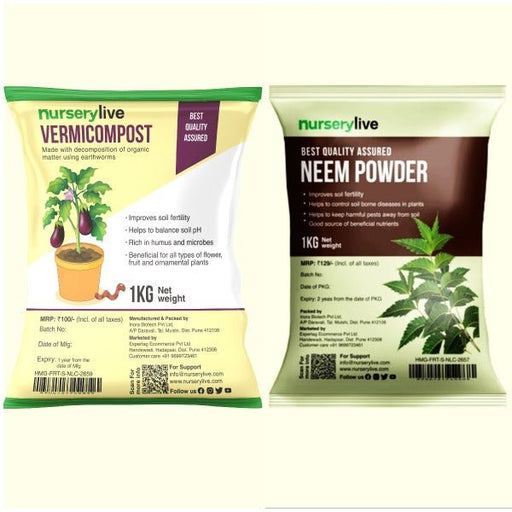 Save 15%
Save 15%
Pack of Vermicompost and Neem Cake for House Plants Transform your indoor garden with our premium Pack of Vermicompost and Neem Cake, spec...
View full details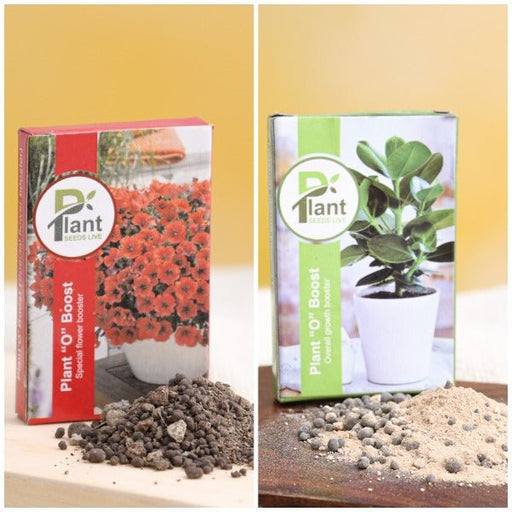
Pack of Plant Growth and Flower Boosters Unlock the full potential of your garden with our Pack of Plant Growth and Flower Boosters! This ...
View full details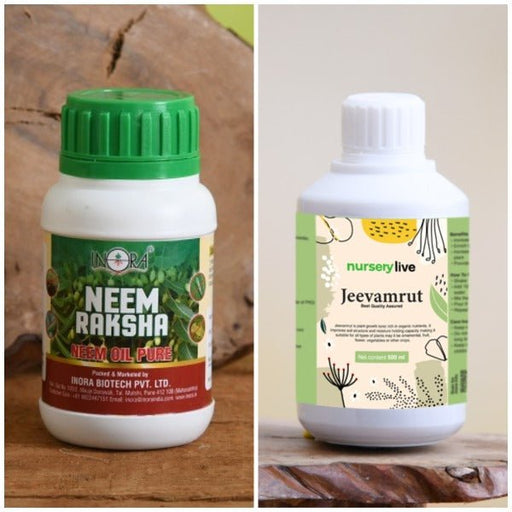 Save 38%
Save 38%
Combo of Jeevamrut and Neem Raksha for Easy Growth and Protection of Houseplants Transform your indoor garden with our exclusive combo of ...
View full details Save 22%
Save 22%
Plant Nutrients Kit (Pack of 16) for a Healthy Garden Transform your garden into a lush paradise with our Plant Nutrients Kit, featuring 1...
View full details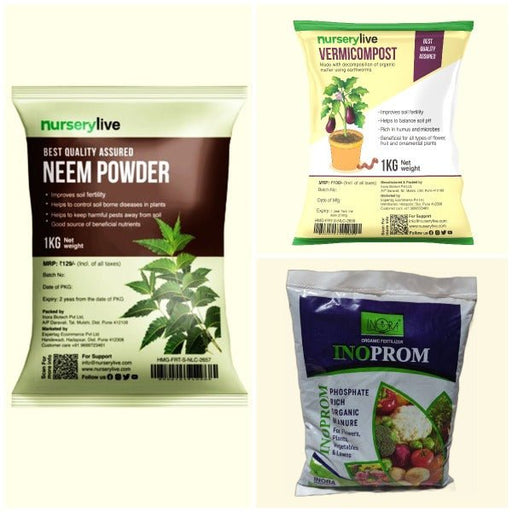 Save 16%
Save 16%
Combo of Top Plant Fertilizers Elevate your gardening game with our exclusive Combo of Top Plant Fertilizers, featuring two bags of premiu...
View full details Save 24%
Save 24%
Pack of 4 Additives to Make Soil Healthy and Nutrient Rich Transform your garden into a thriving ecosystem with our Pack of 4 Additives de...
View full details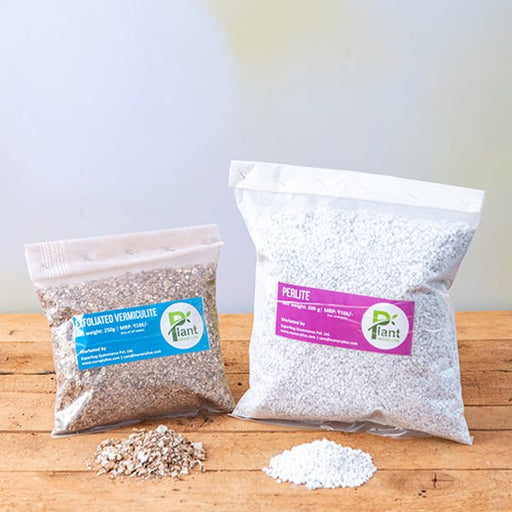 Save 30%
Save 30%
Transform your gardening experience with our premium Combo of Perlite and Vermiculite. This unique blend is designed to enhance soil aeration and ...
View full details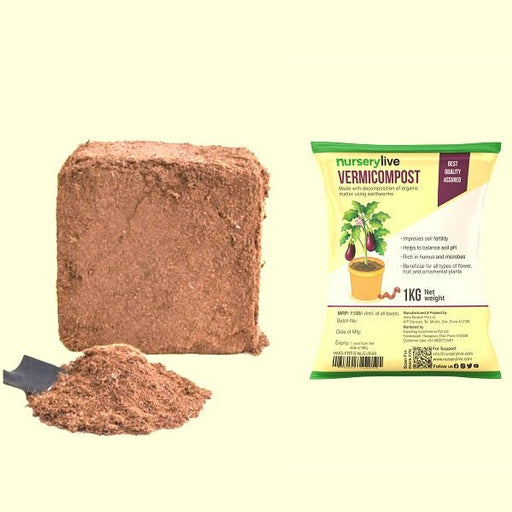 Save 27%
Save 27%
Combo of 2 Vermicompost and Cocopeat - Enrich Your Soil Naturally! Transform your garden into a thriving ecosystem with our Combo of 2 Ver...
View full details
 Save 35%
Save 35%
Best 6 Plants for Perfect Indoor Garden Transform your living space into a lush oasis with our curated collection of the Best 6 Plants for a...
View full details
 Save up to 50%
Save up to 50%
Mini Succulent Garden Pack Transform your space with our Mini Succulent Garden Pack, featuring a delightful collection of 4 any variety beautiful s...
View full details
 Save 30%
Save 30%
5 Best Fragrant Plants Transform your garden or indoor space into a fragrant paradise with our curated selection of the 5 Best Fragrant Plants. Th...
View full details
 Save 24%
Save 24%
Set of 2 Bonsai Looking Grafted Adeniums Transform your indoor or outdoor space with our exquisite Set of 2 Bonsai Looking Grafted Adenium...
View full details Save 45%
Save 45%
Top 4 Die Hard Succulents Pack Transform your indoor or outdoor space with our Top 4 Die Hard Succulents Pack, featuring a curated selecti...
View full details
 Save 30%
Save 30%
5 Best Indoor Plants Pack Transform your living space into a lush oasis with our '5 Best Indoor Plants Pack.' This carefully curated collection fe...
View full details
 Save 25%
Save 25%
Set of 4 Evergreen Air Purifier Plant Pack Transform your indoor space into a lush, green oasis with our Set of 4 Evergreen Air Purifier Pla...
View full details| SrNo | Item Name |
|---|---|
| 1 | Polygonum - Plant |
Polygonum, commonly known as knotweed, is a diverse genus of flowering plants belonging to the buckwheat family (Polygonaceae). With over 200 species, this hardy plant is celebrated for its resilience and adaptability, thriving in various environments from wetlands to mountainous regions. Its unique growth patterns and vibrant foliage make it a popular choice for gardeners and landscapers alike.
What sets Polygonum apart is its remarkable ability to improve soil health and prevent erosion. Many species, such as Japanese knotweed, are known for their rapid growth and extensive root systems, which help stabilize soil and promote biodiversity. This plant not only enhances the aesthetic appeal of gardens but also contributes positively to the ecosystem.
Polygonum's special features include its medicinal properties, with some species used in traditional medicine for their anti-inflammatory and antioxidant effects. Additionally, its ability to thrive in poor soil conditions makes it an excellent choice for sustainable gardening practices.
Polygonum species contribute to soil health and biodiversity, making them valuable in ecological restoration projects. Their extensive root systems help prevent soil erosion, while their ability to thrive in various conditions supports a wide range of wildlife. However, caution is advised with invasive species, as they can disrupt local ecosystems.
If you think caring for a Polygonum is like babysitting a cactus, think again! These plants thrive on a little TLC, so get ready to roll up your sleeves. Water them just enough to keep them happy, but don’t drown them like a bad rom-com. They love well-drained soil and a sunny spot, so treat them like the divas they are. Remember, a little pruning goes a long way, so channel your inner topiary artist and keep those leaves in check!
Welcome to the world of Polygonum, where diversity reigns supreme! From the charming Knotweed to the elegant Japanese Fleeceflower, there’s a variety for every garden personality. Some are bold and brash, while others are subtle and sophisticated. It’s like a botanical fashion show, and you’re the judge! Choose wisely, and your garden will be the talk of the town—or at least the talk of your backyard BBQ.
Who knew that a plant could be a multitasking superstar? Polygonum isn’t just a pretty face; it’s got benefits galore! From erosion control to attracting pollinators, this plant is like the Swiss Army knife of the garden. Plus, some varieties are edible, so you can impress your friends with your foraging skills. Just remember, not all Polygonum are created equal—some are more “dinner party” than “dinner plate.”
Ready to play plant matchmaker? Propagating Polygonum is easier than swiping right on a dating app! You can do it through cuttings or division, and before you know it, you’ll have a mini Polygonum empire. Just make sure to give them the right conditions to thrive, or you might end up with a plant that’s more “ghosted” than “growing.”
Ah, the dreaded pests! Just when you thought your Polygonum was living its best life, here come the uninvited guests. Aphids, spider mites, and other critters might try to crash the party, but fear not! A little neem oil or insecticidal soap can send them packing. Think of it as your plant’s bouncer—keeping the riffraff out and ensuring your garden remains a VIP zone.
If you’re looking to jazz up your landscape, Polygonum is your go-to plant! With its lush foliage and vibrant blooms, it’s like the confetti of the garden world. Use it as a ground cover, a border, or even a focal point—just don’t let it steal the spotlight from your other plants. After all, every garden needs a little drama, but not too much!
Did you know that Polygonum has a history that’s as rich as your grandma’s secret recipe? Used in traditional medicine for centuries, this plant is believed to have various health benefits. From anti-inflammatory properties to potential heart health perks, it’s like nature’s little pharmacy. Just remember, while it’s great for your garden, consult a professional before turning your backyard into a wellness retreat.
If you want to throw a garden party for the local wildlife, Polygonum is your VIP ticket! This plant attracts bees, butterflies, and even the occasional hummingbird, making your garden a buzzing hotspot. It’s like a five-star restaurant for pollinators, so get ready for some winged guests. Just don’t be surprised if they start bringing their friends!
Think of Polygonum as a plant with a refined palate—it knows what it likes! Well-drained soil is a must, and it prefers a slightly acidic to neutral pH. If your soil is too heavy, it might throw a tantrum, so consider amending it with compost or sand. Treat your Polygonum to a gourmet soil experience, and it will reward you with lush growth and vibrant blooms.
Just like you wouldn’t wear a winter coat in July, your Polygonum has seasonal needs too! In spring, it’s all about growth and vigor, while summer calls for regular watering. As fall approaches, it’s time to prepare for dormancy—think of it as your plant’s spa retreat. Winter? Well, that’s when it hibernates, so don’t disturb its beauty sleep!
Looking to create a botanical buddy system? Polygonum plays well with others, making it a great companion plant! Pair it with perennials or ornamental grasses for a stunning display. Just be cautious—some plants might be a little too clingy for your Polygonum’s taste. Choose wisely, and your garden will be the envy of the neighborhood!
If you’re feeling adventurous, harvesting Polygonum can be a delightful experience! Some varieties are edible, and you can use their leaves and stems in salads or stir-fries. Just make sure you know which ones are safe to eat—nobody wants a surprise dinner guest in the form of an upset stomach. With a little knowledge and a dash of creativity, you’ll be the proud owner of a Polygonum-inspired culinary masterpiece!
Polygonum, also known as smartweed, is a genus of flowering plants in the buckwheat family. These resilient green wonders thrive in various habitats, often popping up where you least expect them. With over 200 species, they’re the party crashers of the plant world, bringing color and charm to gardens and wild spaces alike.
Identifying Polygonum is like playing botanical bingo! Look for their distinctive arrow-shaped leaves and clusters of tiny flowers, often pink or white. They love to hang out near water, so check your local wetlands. If you spot a plant that seems to have a knack for thriving in tough spots, you might just have a Polygonum on your hands!
Absolutely! Some Polygonum species, like the famous Japanese knotweed, are not just pretty faces; they’re also edible. Young shoots can be cooked like rhubarb, adding a tangy twist to your culinary creations. Just remember, not all Polygonum are gourmet-approved, so do your homework before tossing them into your salad!
Polygonum has a rich history in traditional medicine, often used for its anti-inflammatory and antioxidant properties. It’s like nature’s little pharmacy! From soothing skin irritations to supporting heart health, this plant packs a punch. Just remember, consult a professional before turning your garden into a medicine cabinet!
Growing Polygonum is as easy as pie! They thrive in well-drained soil and love a good sunbath. Just plant them in a sunny spot, water them regularly, and watch them flourish. They’re like the overachievers of the plant world, often growing vigorously and spreading joy (and sometimes themselves) wherever they go!
Oh, you bet! Some Polygonum species, like Japanese knotweed, are notorious for their invasive tendencies. They can spread like gossip at a family reunion, taking over gardens and landscapes. If you’re considering planting them, be prepared to keep a close eye on their escapades to prevent them from crashing the party!
Polygonum loves to party in moist, well-drained soil with plenty of sunlight. They’re not picky eaters, but they do appreciate a little organic matter in their diet. Whether you’re planting them in a garden or letting them roam wild, just ensure they have enough space to stretch their leafy limbs!
Caring for Polygonum is a breeze! They’re low-maintenance divas that thrive with minimal fuss. Regular watering and occasional pruning will keep them looking fabulous. Just watch out for pests; they can be a bit of a drama queen if not monitored. With a little love, they’ll reward you with vibrant foliage and blooms!
Indeed! The Polygonum family is a diverse bunch, boasting over 200 species. From the charming water pepper to the notorious Japanese knotweed, each type has its own quirks and characteristics. Whether you’re looking for a garden star or a wildflower, there’s a Polygonum out there just waiting to steal the show!
Absolutely! Polygonum can add a splash of color and texture to your landscape. They’re perfect for borders, ground cover, or even as a focal point in a wildflower garden. Just be mindful of their potential to spread; you want them to enhance your garden, not take it over like an uninvited guest!
Most Polygonum species are generally safe for pets, but it’s always best to double-check. Some plants can cause mild stomach upset if ingested, so keep an eye on your furry friends. If you’re unsure, consult your vet before letting your pets frolic among the foliage. Better safe than sorry, right